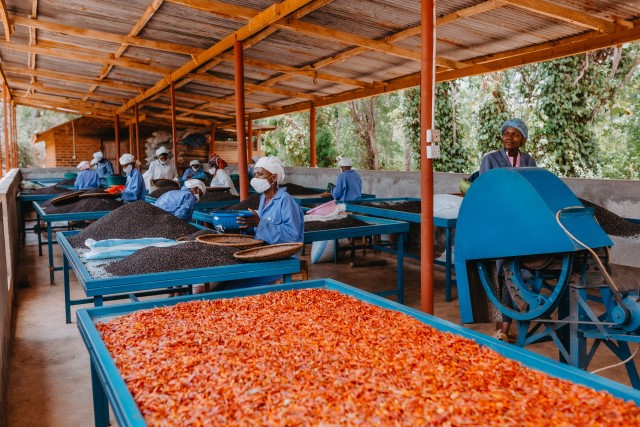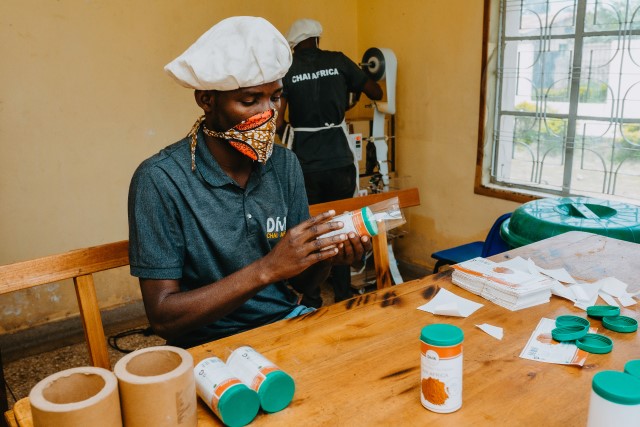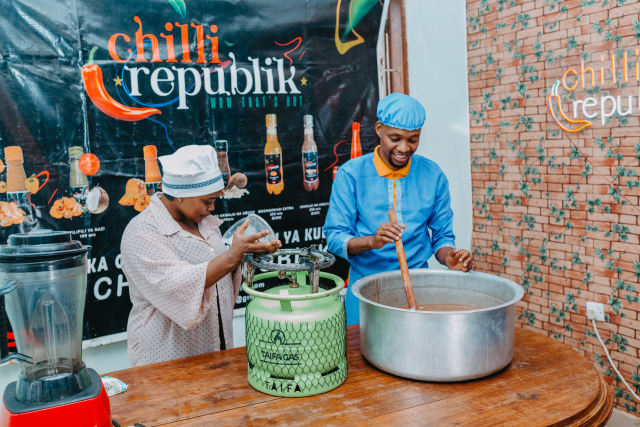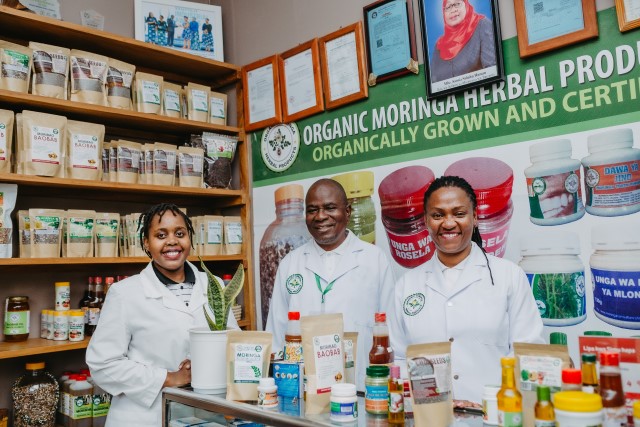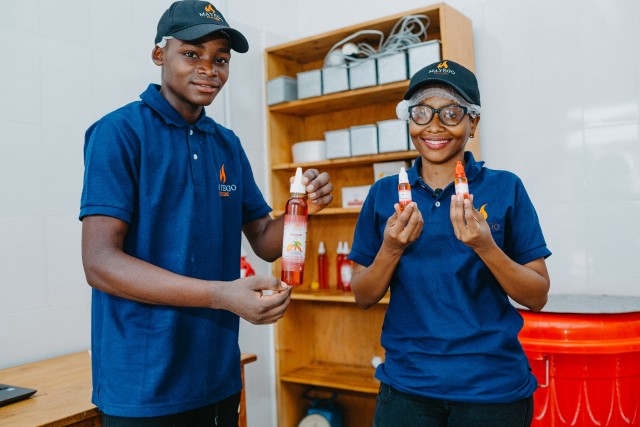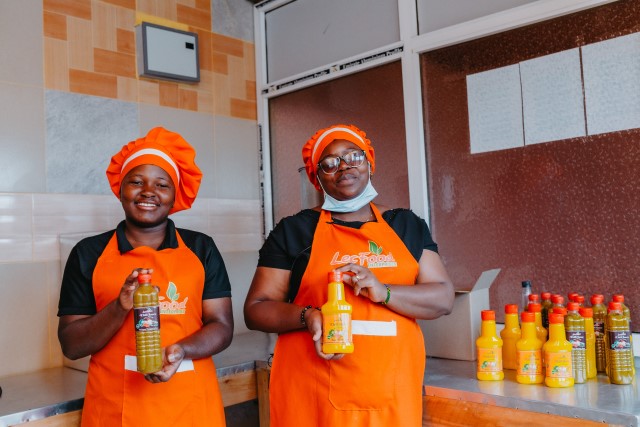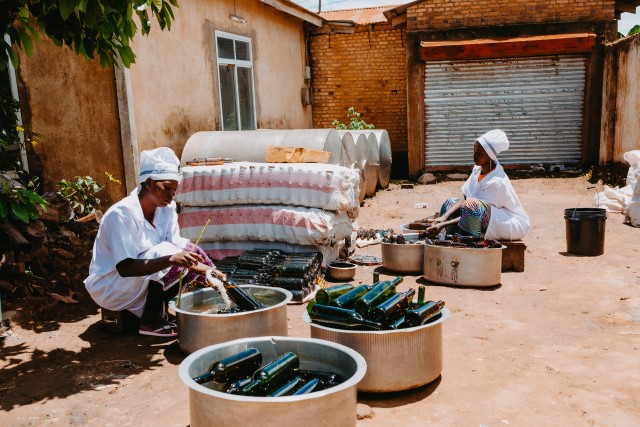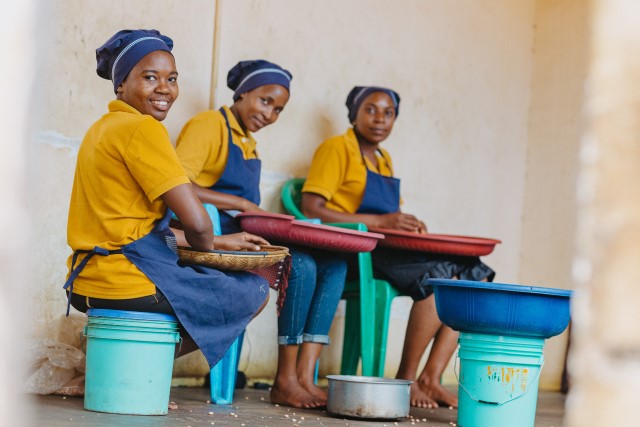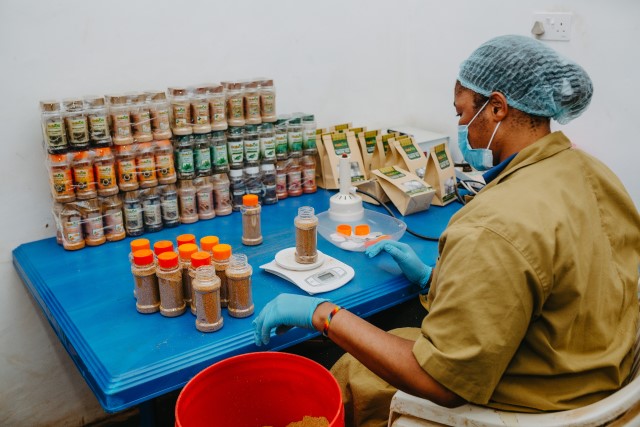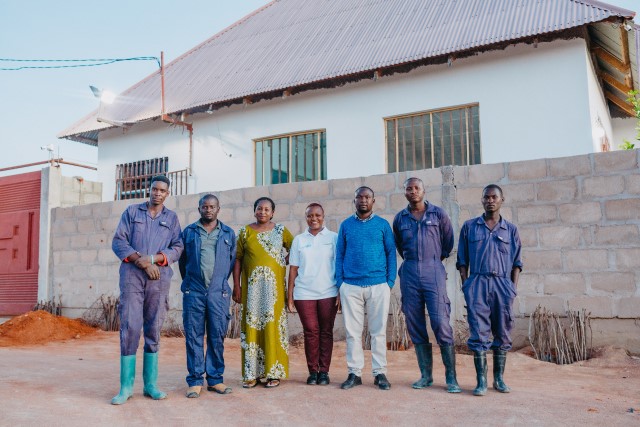Unlocking potential for small horticultural enterprises
03 August 2023

With business training and support, Farm Africa is helping small enterprises tap into the prosperity of Tanzania’s booming horticultural sector.
Already ranked amongst the world’s top 20 producers of vegetables, Tanzania’s horticultural sector is steadily growing at a rate of 11% per year. Much of this production is being delivered by micro, small and medium-sized enterprises (MSMEs).
However, inadequate business expertise is preventing many of these companies from scaling up to reap the full benefits of soaring demand.
To overcome this barrier, the Delivering Expertise and Investment to Developing Enterprise (DECIDE) project, funded by the Norwegian Agency for Development Cooperation (NORAD), has been supporting a range of MSMEs to evolve into profitable, growing agribusinesses.
WHY AGRIBUSINESSES?
Although agribusinesses have contributed to the accelerated production rates of raw horticultural produce in Tanzania, the agribusiness industry itself has not been able to match that growth.
This is especially true for processing enterprises, such as sorting, grading, reserving and packaging, which add value to raw produce. Such enterprises present excellent inclusive opportunities for growth.
For example, low start-up costs and small space requirements enable aspiring female entrepreneurs who lack the land or finance for farming to develop businesses processing agricultural produce.
These enterprises then create further employment opportunities for other women and young people. Smallholder farmers also benefit through grow-to-order contracts that supply MSMEs with quality raw produce in return for a guaranteed price.

I farm with BEULA Company. I see many advantages personally and in my society. I didn’t have a house, I have now built my own house. My children are in school. All through the income I get by farming with this company.
Athuman Hamisi, a contracted smallholder farmer for BEULA
UPSKILLING AND UPSCALING
From a seed producer to a ketchup manufacturer to a café owner, the DECIDE project works with a huge diversity of businesses engaged in the horticultural sector.
Scroll through these images to learn more about some of the businesses taking part in the project.
Project activities cater to the specific needs of each business, but include:
- providing training in management, financial and technical skills
- helping enterprises develop professional business cases and prepare for due diligence processes to support loan applications
- identifying new activities that could make the enterprises a positive return on investment
- facilitating mutually beneficial contracts between farmers, buyers, suppliers and traders
- identifying and tackling the obstacles facing female- and youth-led businesses
Originally timetabled to complete in December 2021, this three-year project has made such promising impact that funding was extended a further 18 months, enabling the project to embark on its fourth year of support in 2022.
DECISIVE GROWTH
In 2022 the DECIDE project continued to work with the 40 MSMEs already enrolled in the project, and identified an additional 15 to support. Of the total participating enterprises, approximately 71% are led by women. By the end of 2022:
- average annual profits across participating businesses had increased to 62.4 million Tanzanian Shillings (TZS) ($25,500), exceeding the project’s 2022 target of 41.4 million TZS ($16,800) by 51%
- 76% of the businesses were sourcing their raw produce directly from smallholder farmers, trading an average annual value of 2.8 million TZS ($1,145), which exceeded the project’s 2022 target of 1.5 million TZS ($613) by 93%
- 85% of businesses were receiving external financing for investment, exceeding the 2022 target by 21%
Instead of using an exercise book, I switched to a digital point of sale system. I have seen the major advantage to this.
Caroline Kaaya, manager, Café Fresh
Among the skills the business leaders cited as most useful were learning how to manage financial records digitally, how to use electronic devices to track transactions and payments, how to secure finance, and how to model good communication and teamwork.
Photos: Kababah Digital Media.

